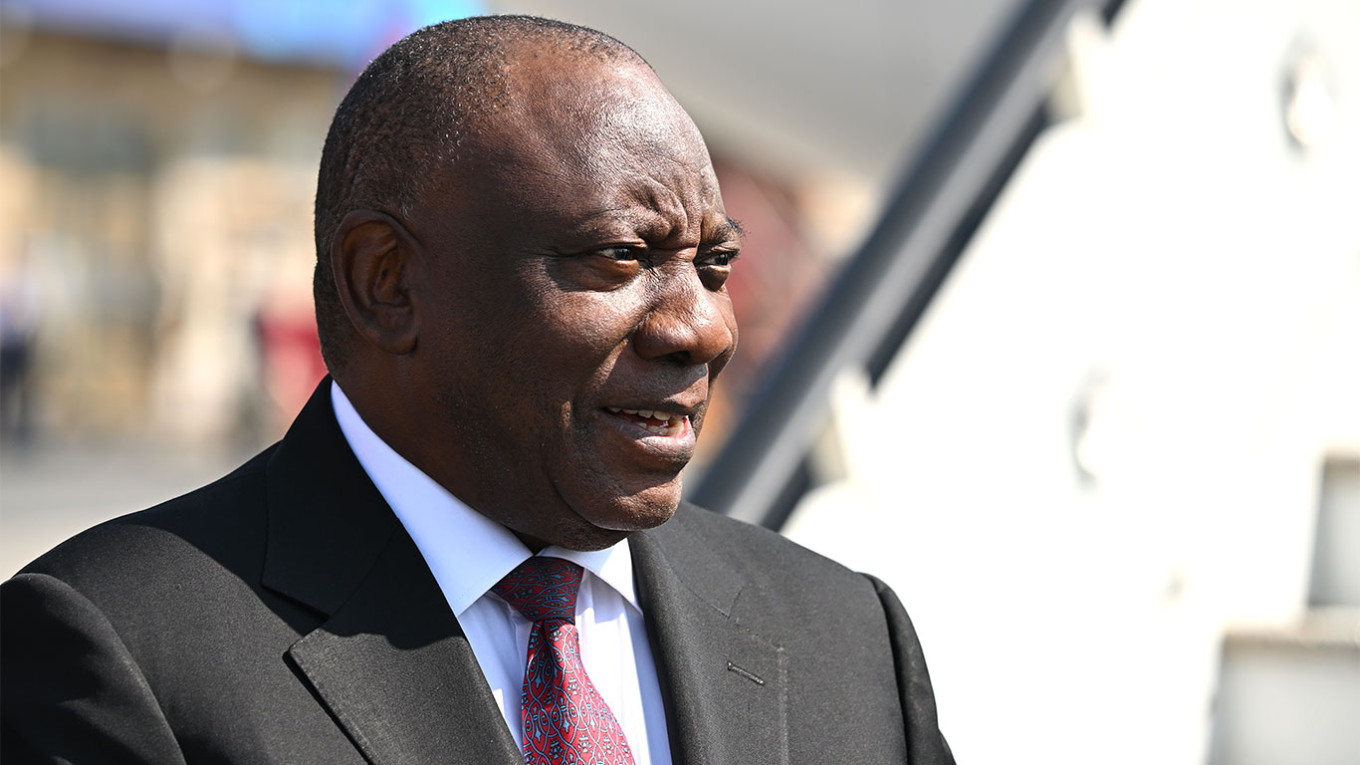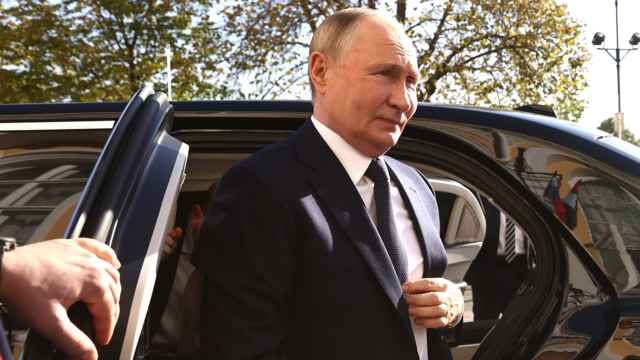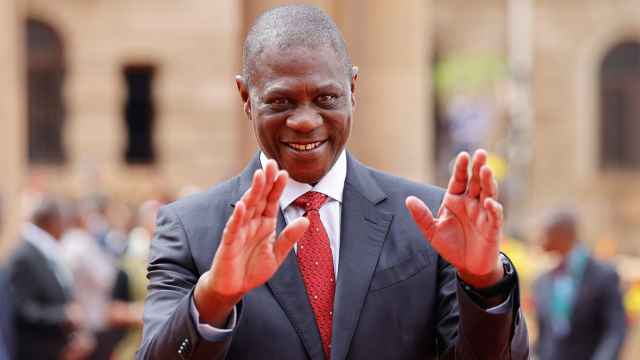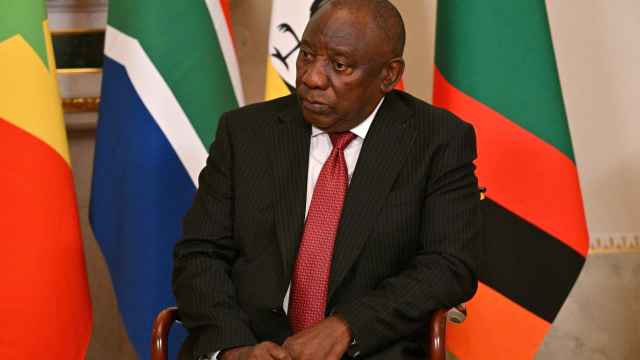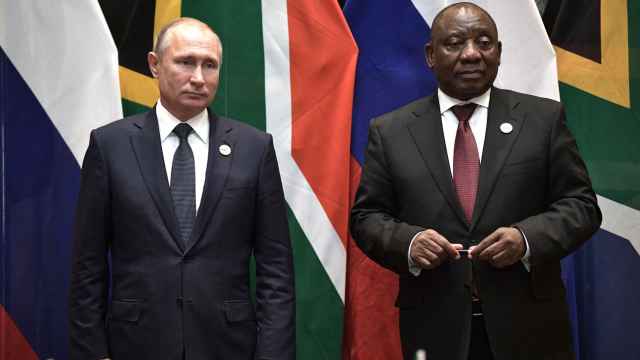Arresting Vladimir Putin would amount to a declaration of war on Russia, South African President Cyril Ramaphosa wrote in court papers released on Tuesday as the country wrangles over hosting the Russian leader.
Putin has been invited to a BRICS summit in Johannesburg next month but is the target of an International Criminal Court arrest warrant — a provision that Pretoria as an ICC member would be expected to implement were he to attend.
South Africa's diplomatic dilemma is playing out in court, where the leading opposition party, the Democratic Alliance (DA), is trying to force the government's hand and ensure the Kremlin leader is held and handed over to the ICC if he steps foot in the country.
But in a responding affidavit, Ramaphosa described the DA's application as "irresponsible" and said national security was at stake.
"Russia has made it clear that arresting its sitting President would be a declaration of war," he said.
"It would be inconsistent with our Constitution to risk engaging in war with Russia," he said, adding that this would go against his duty to protect the country.
The arrest would also undermine a South African-led mission to end the war in Ukraine and "foreclose any peaceful solution," Ramaphosa wrote.
South Africa is seeking an exemption under ICC rules based on the fact that enacting the arrest could threaten the "security, peace and order of the state," Ramaphosa said.
Last month, Ramaphosa led a seven-country African peace delegation including representatives from Egypt, Senegal and Zambia, to talks in Kyiv and St. Petersburg.
The ICC treaty states that a member country should consult the court when it identifies problems that may impede the execution of a request, and that the court may not proceed with requesting an arrest if this would require a state to break international rules on diplomatic immunity.
'Flimsy' argument
South Africa is the current chair of the BRICS group, a gathering of heavyweights that also includes Brazil, Russia, India and China, which sees itself as a counter-balance to Western economic domination.
Putin is sought by the ICC over accusations that Russia unlawfully deported Ukrainian children.
South African Deputy President Paul Mashatile has said in recent interviews with local media the government has been trying to persuade Putin not to come — but so far unsuccessfully.
Signed in June and initially marked as "confidential," Ramaphosa's affidavit was published on Tuesday, after the court ruled it be made public.
DA leader John Steenhuisen praised the court's decision, describing Ramaphosa's argument that South Africa risked war with Russia as "farcical" and "flimsy."
"When foreign policy decisions have the capacity to decimate South Africa's international reputation... and decimate our economy, it is crucial that government uphold its obligation to be open and transparent," Steenhuisen said in a statement.
South Africa has strong economic and trade relations with the United States and Europe.
Trade with Russia is much smaller, but Pretoria has ties with Moscow dating back decades, to when the Kremlin supported the ruling African National Congress party in its struggle against apartheid.
Commenting on the affidavit on the side-lines of Nelson Mandela Day celebrations in the late leader's birthplace of Qunu, Ramaphosa described the case as involving "intricate diplomatic issues."
A Message from The Moscow Times:
Dear readers,
We are facing unprecedented challenges. Russia's Prosecutor General's Office has designated The Moscow Times as an "undesirable" organization, criminalizing our work and putting our staff at risk of prosecution. This follows our earlier unjust labeling as a "foreign agent."
These actions are direct attempts to silence independent journalism in Russia. The authorities claim our work "discredits the decisions of the Russian leadership." We see things differently: we strive to provide accurate, unbiased reporting on Russia.
We, the journalists of The Moscow Times, refuse to be silenced. But to continue our work, we need your help.
Your support, no matter how small, makes a world of difference. If you can, please support us monthly starting from just $2. It's quick to set up, and every contribution makes a significant impact.
By supporting The Moscow Times, you're defending open, independent journalism in the face of repression. Thank you for standing with us.
Remind me later.


